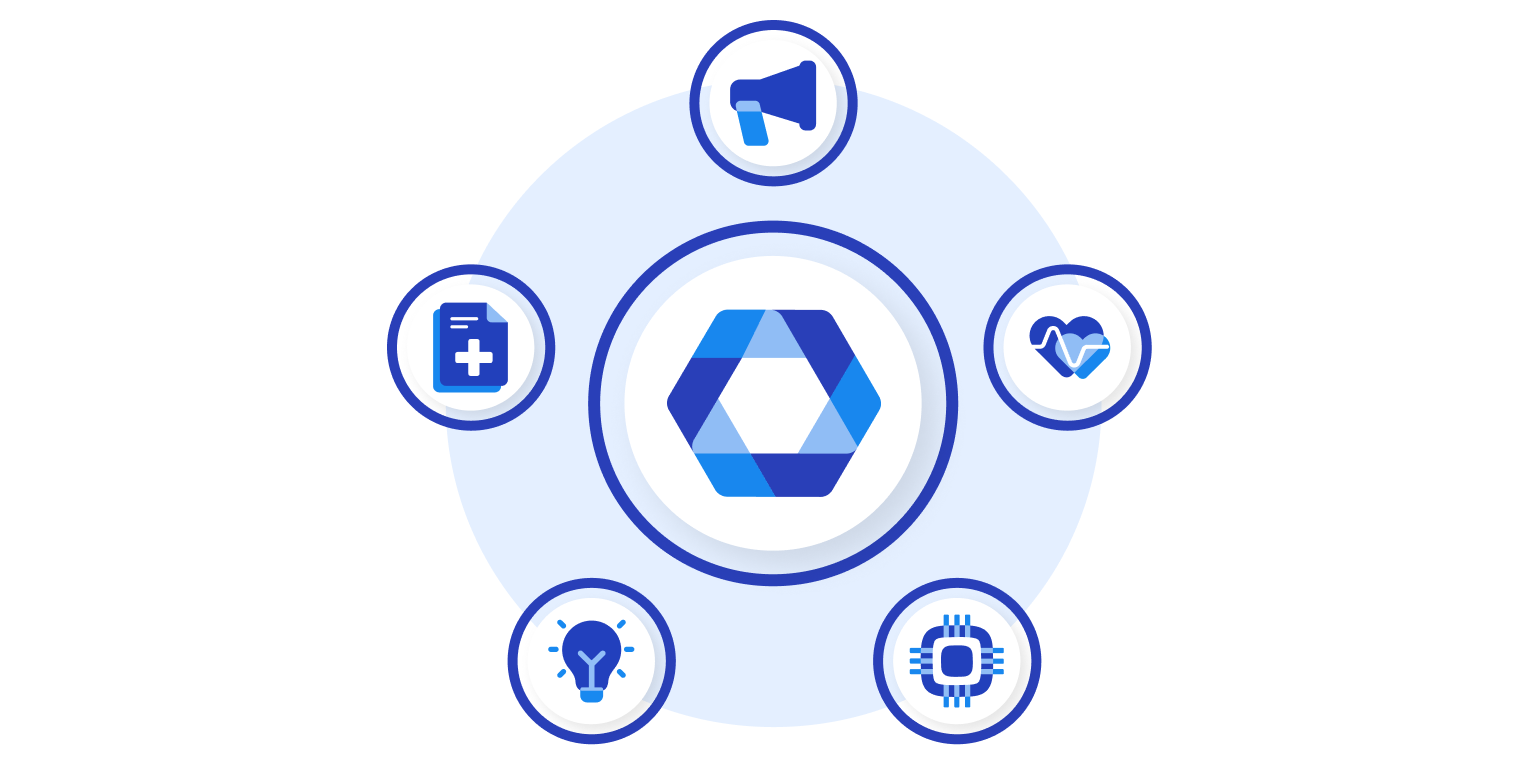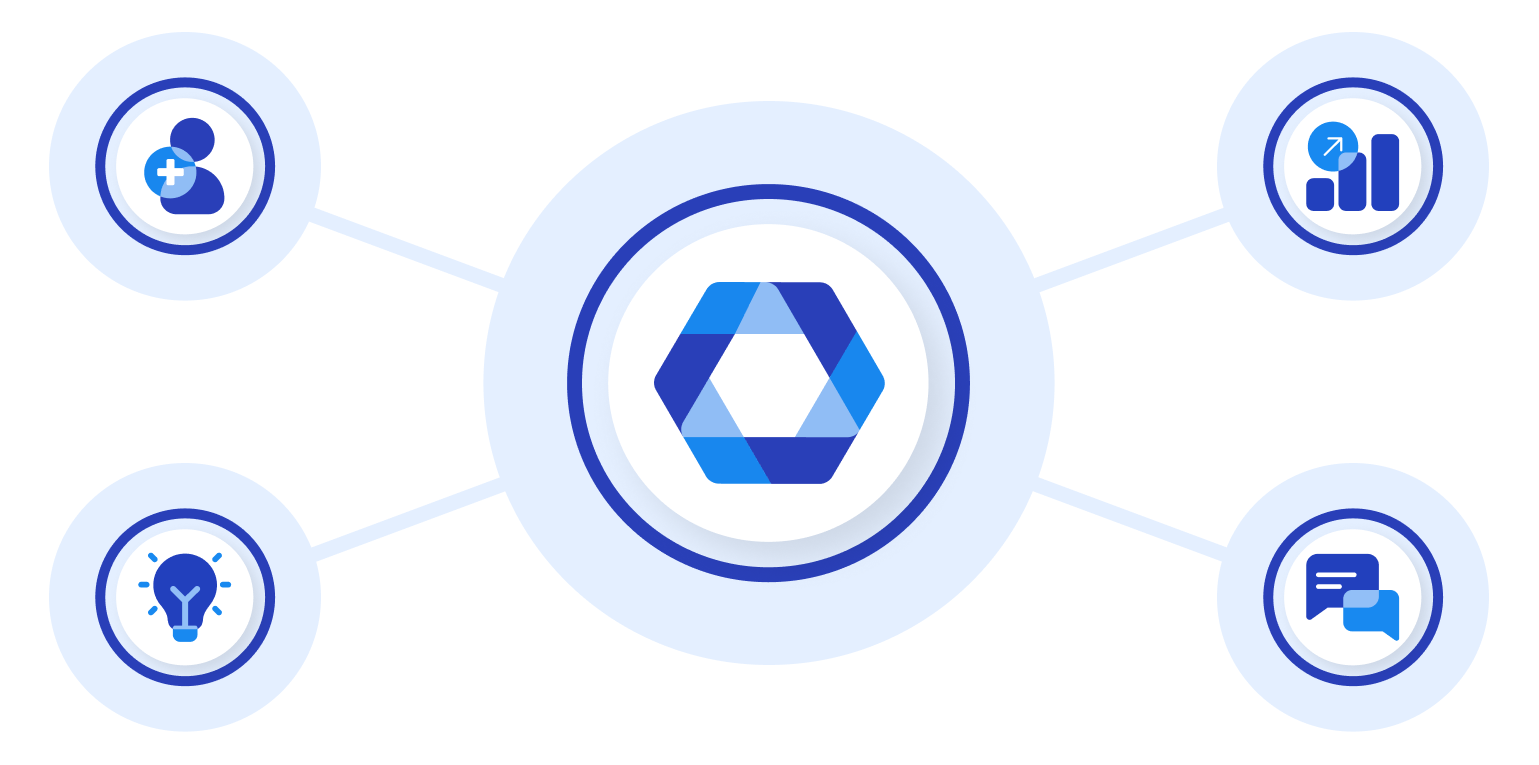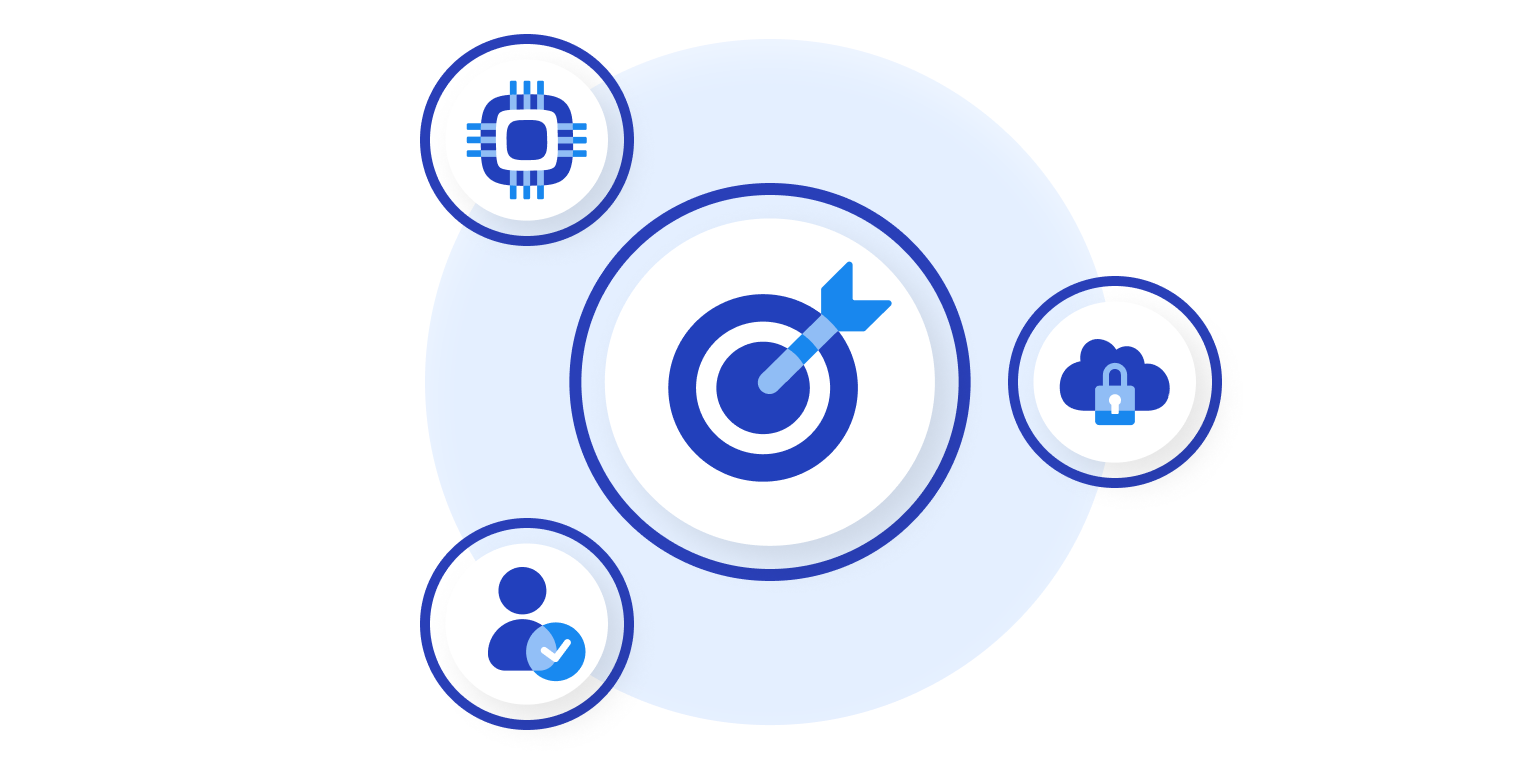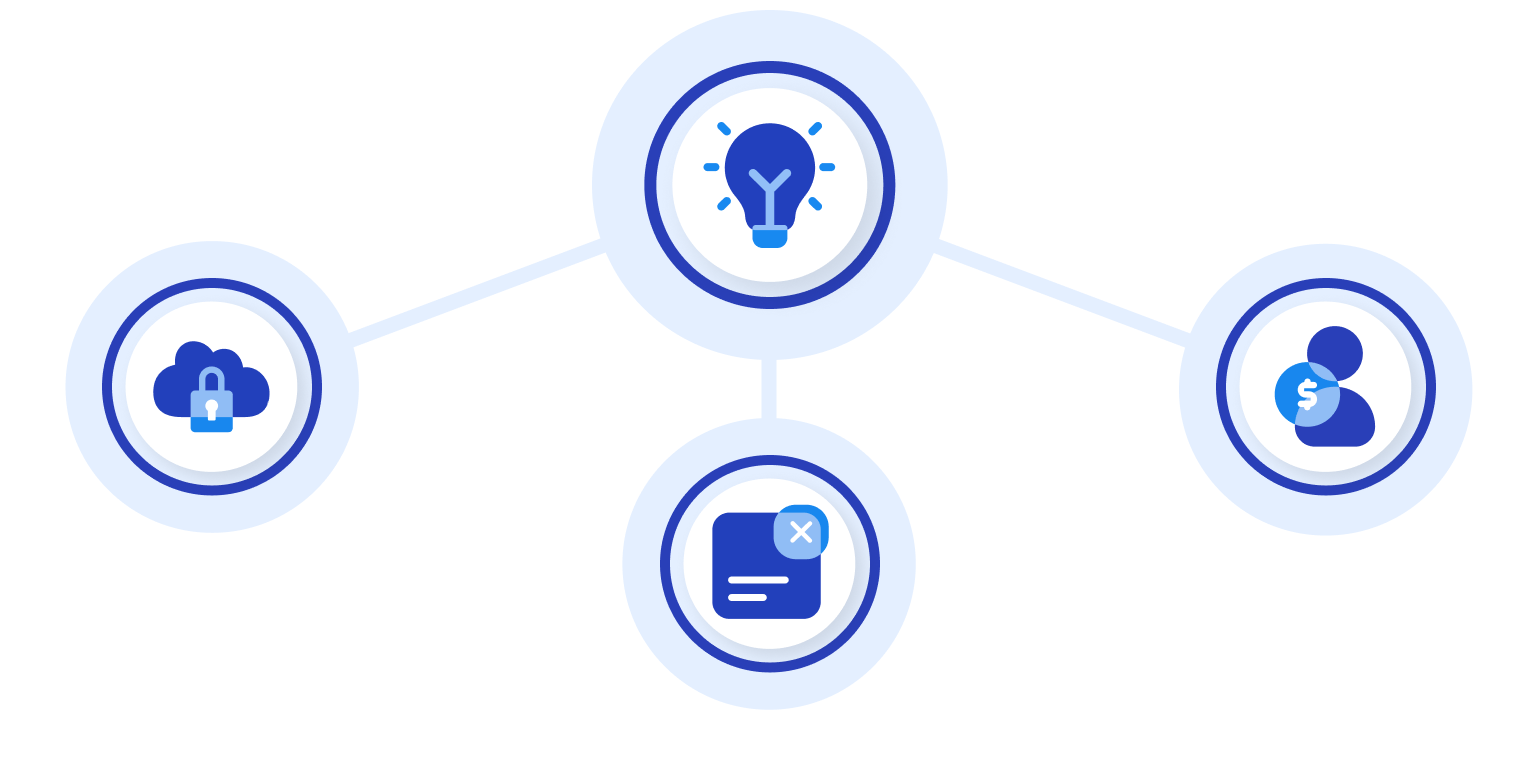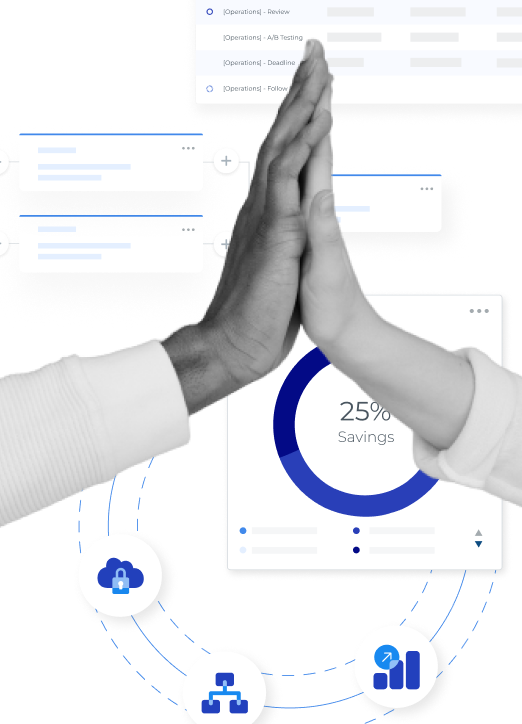Imagine a world where a nurse is notified about a patient’s deteriorating condition even before the patient knows it, where nurses can tailor care based on the patient’s health outcomes, and where nurses can focus more on patient care rather than routine administrative tasks.
This isn’t a distant dream but an imminent reality driven by the integration of artificial intelligence (AI) in nursing. This exciting combination of AI and nursing can overcome traditional barriers, increase efficiency, and elevate patient care.
Understanding AI and Its Role in Healthcare
Artificial intelligence (AI), at its simplest, is an advanced software built to learn and problem-solve — tasks associated with human intelligence. What sets it apart, though, is its ability to sift through mountains of data, identify patterns, learn from them, and make informed decisions, all at a speed and accuracy beyond the capacity of a human.
In healthcare, AI has several applications. It can analyze complex medical data, predict health trends, and improve patient outcomes. It can also automate routine tasks, allowing healthcare professionals to focus on personalized care.
Nurses, as the frontline caregivers, benefit the most from these advancements. By integrating AI into nursing, we open up a world of possibilities that can reshape roles, redefine norms, and improve the quality of care.
AI Tools in Nursing
Welcome to the transformative world of AI in nursing. Here, technology intersects with healthcare so seamlessly that it becomes essential for delivering improved patient care. Let’s explore the various AI tools revolutionizing nursing practices.
Wearable Devices
Imagine a patient with a chronic condition with a wearable device that continuously monitors their health, alerts them (and their nurse) when their vital signs go above normal and reminds them to take their medication.
This is how wearable AI technologies are transforming nursing practices. These devices provide nurses with real-time insights into a patient’s condition, which leads to early interventions and improved health outcomes.
Remote Patient Monitoring Systems
Remote patient monitoring (RPM) systems, by seamlessly integrating with electronic health records (EHRs) and other healthcare systems, are streamlining care coordination. By remotely monitoring patient health, these systems allow nurses to provide timely care, effectively manage caseloads, and improve patient–nurse communication.
Machine Learning
Machine learning, a subset of AI, provides computers with the ability to learn from data and make accurate predictions.
In nursing, machine learning applications range from predicting patient deterioration to determining optimal treatment strategies. It could mean the difference between a timely intervention and a delayed response, significantly impacting clinical decision-making and patient outcomes.
Deep Learning
Deep learning, another part of AI, is used in nursing to analyze medical images, detect diseases, or interpret complex electronic health records (EHRs). This enhances diagnostic accuracy, aids treatment planning, and promises improved patient outcomes.
Predictive Analysis
AI’s ability to predict is one of its most impressive features. It can forecast disease progression, patient outcomes, or broader healthcare needs based on population health data. Such predictions can significantly assist in resource allocation and improve patient care planning.
Case Studies of AI Application in Nursing
AI has moved from just a concept to actual use in nursing. Here are three successful AI applications in nursing that show how the technology can enhance patient care and nursing productivity.
KATE – AI-Driven Triage System
The Knowledge Acquisition and Triage Engine (KATE) is a promising AI application. This patient triage system for the emergency room uses AI to assess patient conditions quickly and accurately. By providing a preliminary analysis, it helps the nursing staff prioritize patients based on the severity of their condition.
KATE’s success lies in its ability to go through vast amounts of data, identify patterns, and make accurate predictions in real-time. It reduces the workload for nurses so they can focus more on patient care and less on administrative duties, significantly improving emergency room efficiency and patient outcomes.
Rothman Index – Real-Time Health Monitoring
Consider the Rothman Index, an algorithm that uses EHR data to monitor a patient’s health in real-time. It uses AI to analyze several aspects of a patient’s health, such as vital signs, lab results, and nursing assessments and then turns it into a score representing the patient’s overall health status.
The advantage of the Rothman Index is its ability to predict patient deterioration hours, and sometimes even days, before the usual warning signs appear. This provides the nursing staff enough time to intervene, preventing emergencies and improving patient outcomes.
AI and Sepsis Detection
AI has proven beneficial in the early detection of sepsis, a life-threatening condition that requires prompt diagnosis and intervention. Emory University Hospital, for instance, developed an AI system that monitors patients’ vital signs and laboratory results to detect early signs of sepsis.
By warning the nursing staff of a potential sepsis, they can act early and drastically increase patient survival rates. This AI application shows not only how AI can predict and mitigate critical health conditions but also how it can lighten the workload of nurses.
Dascena’s InSight – Predicting Acute Kidney Injury
Acute kidney injury (AKI) is a common but potentially fatal complication in hospitalized patients. Recognizing this, Dascena, a predictive algorithm firm, developed InSight, an AI algorithm that predicts AKI early.
InSight analyzes patient data to predict the start of AKI 48 hours before it occurs, giving medical teams enough time to intervene and prevent it. The success of this AI tool emphasizes the profound impact of predictive analysis on patient outcomes and how AI can help nurses prevent critical conditions.
These case studies illustrate that AI’s potential in nursing is not just theoretical – it’s practical, impactful, and transformative. Its ability to enhance the work of nursing professionals and improve patient outcomes shows its potential to transform healthcare.
Implementing AI in Nursing
While the promise of AI in nursing is undeniable, its implementation can be challenging. Integrating AI into nursing practice involves not just incorporating technology but also redefining nursing roles, responsibilities, and workflows.
AI Best Practices in Nursing
Successful AI transformation in nursing depends on the following best practices:
Engaging Nurses in the Design and Implementation
Including nurses in developing AI tools is critical. As the end users, nurses know the challenges and needs of patient care. Their insights can help make AI tools that are practical, user-friendly, and effective.
However, nurses should be involved not just at the start but throughout the AI tool’s use. By letting nurses test the tools and give feedback, organizations can continuously refine these tools to meet the evolving needs of the nursing practice.
Robust Training Programs
Introducing AI tools in nursing requires a commitment to training, as nurses need to know how to effectively use these tools. Training programs must cover not only how these AI tools work but also how they can be applied in various clinical scenarios, how to interpret their outputs, and how to use their insights in patient care.
Familiarity and comfort with new technology enhance its integration into daily routines. Moreover, ongoing training and support are paramount as AI tools evolve to ensure their effective use in the long term.
Continuous Evaluation and Adjustment
AI tools aren’t static; they need regular evaluation and adjustment to keep up with AI advancements and changing patient care needs. Regular reviews should be done to measure the effectiveness of AI tools.
These reviews should evaluate both tangible metrics like improved patient outcomes and operational efficiencies, and intangible metrics, such as nurse satisfaction and patient experience. Adjustments should be made based on these evaluations to ensure the AI tools remain relevant and valuable in improving nursing practices.
Feedback Loops
Feedback loops between the technology developers and the nursing staff are essential in optimizing AI tools. Continuous collaboration allows for immediate identification and rectification of issues, resulting in AI tools that better-fit nursing needs.
It’s also important to have a system where nurses can report challenges and provide suggestions. This feedback can guide adjustments to the AI tools and ensure they continue to be valuable to nursing practice.
The Role of a Growth Mindset in AI Integration
AI is a rapidly growing field. The AI tools we use today are likely to become more advanced tomorrow. To stay ahead, organizations need to have a growth mindset. This involves recognizing that the AI journey is one of continuous evolution, exploration, and growth.
A successful AI integration needs an organizational culture that’s open to change, willing to learn from successes and failures, and eager to innovate. Ensuring these tools are user-friendly and beneficial to patient care is also essential. They must be seen as tools that help with care, not just additional tasks or responsibilities for nurses.
Having a growth mindset is more than just accepting AI — it’s about striving to use it to improve patient care, enhance nursing roles, and make healthcare delivery better. It’s about realizing the opportunities that AI offers, mitigating its challenges, and trying to improve patient outcomes. This growth mindset is the key to the successful use of AI in nursing.
The Impact of AI on the Nursing Profession
Few professions have been impacted by AI as much as nursing. AI can improve clinical decision-making by giving nurses access to data-driven insights. This aids in diagnosing conditions more accurately, planning care more effectively, and intervening more promptly, leading to better patient outcomes.
AI also promises to redefine care delivery by enabling personalized healthcare. It allows treatments to be tailored to each patient, making them more effective and reducing side effects. Moreover, by automating routine tasks, AI allows nurses to concentrate more on direct patient care, where their human touch matters.
Future Impacts of AI on Nursing Roles
As AI evolves, so will its impact on nursing roles. AI, with its automation capabilities, is expected to take over more routine tasks such as documentation and basic monitoring. This will free up nurses to do complex patient care tasks that require critical thinking, human touch, and empathy.
Moreover, as AI becomes more integrated into healthcare, new roles will likely emerge for nurses. For instance, we could see roles such as “AI nurse specialists,” who would specialize in integrating, managing, and troubleshooting AI systems in healthcare settings.
Thus, it’s clear that AI will not replace nurses but reshape their roles, allowing them to provide care more efficiently and effectively and focus more on what they do best — caring for patients.
How AI Transforms the Landscape of Nursing Care
Just a few years ago, the current capabilities of AI in nursing might have seemed like a distant dream. Today, it’s a reality. AI is transforming nursing care in ways never seen before.
Diagnostic accuracy is enhanced by AI systems that can analyze medical images and patient data to detect diseases often overlooked by humans.
Powered by AI, predictive analytics can forecast patient health outcomes and population health trends with excellent accuracy, enabling proactive and preventive care. Operational efficiency is improving as AI tools automate routine tasks, streamline workflows, and optimize resource use.
But perhaps the most transformative impact of AI in nursing care is its potential to personalize care. By analyzing individual patient data, AI can help nurses customize care plans to each patient’s unique needs and preferences, improving patient satisfaction and outcomes.
Ethical Implications and Challenges in AI and Nursing
Like any new technology, integrating AI into nursing introduces new ethical considerations and challenges.
Challenges
Challenges in AI in nursing range from issues related to technology infrastructure and personnel training to concerns about data privacy and security. Addressing these challenges is crucial to achieving successful and meaningful use of AI in nursing.
Technological Difficulties
Integrating AI into nursing can bring technological challenges. Not all healthcare facilities may have the necessary infrastructure to support AI technologies. Furthermore, these systems need to work with existing healthcare IT systems, which can be complicated.
Personnel Training
A significant challenge in using AI in nursing is ensuring all nursing staff are adequately trained to use these new tools. This involves not only understanding how AI tools work but also knowing how to interpret their output and apply it to patient care.
Data Privacy and Security
With AI systems often requiring large amounts of data, ensuring robust data privacy and security measures is critical. Sensitive patient information needs to be protected to maintain patient trust and comply with privacy laws and regulations.
Ethical Considerations
As we explore the exciting area of AI in nursing, ethical considerations become important. From protecting data privacy to addressing biases in AI algorithms and ensuring an equal distribution of AI benefits, a careful and thoughtful approach is vital.
Ensuring Data Privacy
AI applications in nursing often use patient data, so it’s crucial to ensure patient confidentiality and privacy aren’t compromised. Controls need to be in place to protect personal health information while using it to improve care outcomes.
Combating Potential Biases in AI Algorithms
AI systems learn from the data they’re given. If the data is biased, AI’s decisions could be biased too. This is a critical ethical consideration when applying AI to nursing, so it’s crucial to ensure the data used to train AI systems represents the diverse patient population.
Equitable Distribution of AI Benefits
AI has the potential to greatly improve the quality of care and improve patient outcomes. However, the benefits of these advancements must be accessible to all patients, not just to those in high-income or urban areas.
This includes overcoming barriers related to technology access, health literacy, and socio-economic differences to ensure the benefits of AI are applied broadly and fairly.
The Future of AI in Nursing
As we look at the future of AI in nursing, we see a lot of exciting opportunities. As AI technology keeps getting better, its applications in nursing will likely grow, opening up new ways for patient care.
We can expect more advanced AI tools that could refine predictive analysis, improve real-time patient monitoring, and help create personalized care plans. Moreover, combining AI with other new technologies, like genomics or telemedicine, could change nursing practices in ways we can’t even imagine today.
However, this fast-paced evolution means a culture of continuous learning, innovation, and adaptation in nursing. As AI tools become more advanced, the skills required to use them effectively will also change. Nurses will need to keep up with these changes and continually update their skills and knowledge.
Thus, the future of AI in nursing promises an unprecedented transformation. By embracing this change and promoting a culture of learning and innovation, nursing professionals can harness the full potential of AI, resulting in improved patient care outcomes and enhanced nursing practices.
Seizing the AI Opportunity in Nursing
The intersection of AI and nursing marks a significant leap beyond conventional care. It’s transforming the nursing field by improving patient outcomes and redefining how care is delivered.
While it’s crucial to appreciate and harness the transformative potential of AI in nursing, it’s equally important to remain vigilant about the ethical considerations and challenges this new era brings.
As we explore this new area, we need to exercise both enthusiasm and caution. The AI revolution in nursing has begun. It’s time for us to seize its potential and reshape the future of nursing care.
Reach out to Kizen today and discover how we can revolutionize your approach to nursing.



